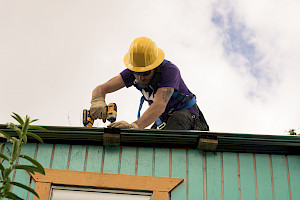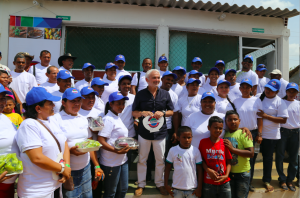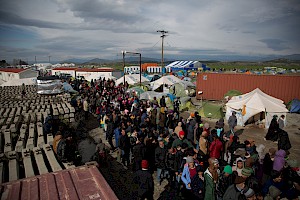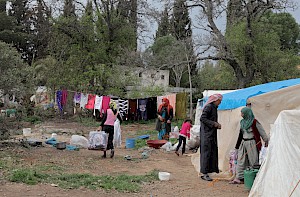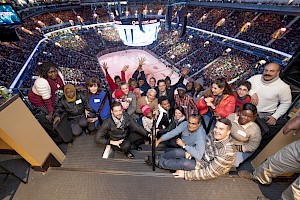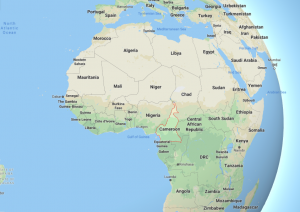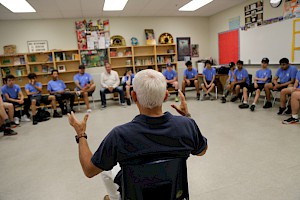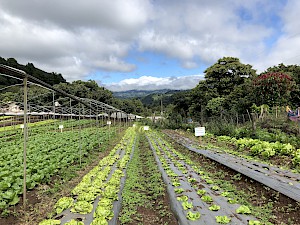Feeding the Vulnerable in a Time of Pandemic
April 17, 2020In the book, Sapiens, historian Yuval Noah Harari says the secret to humans’ survival as a species is “large-scale flexible cooperation.” This, he says, has made us “masters of the world. But at the same time it has made us dependent for our very survival on vast networks of cooperation.” This truth may not always seem apparent. During normal times, money, power, self interest and man-made borders tend to dilute that advantage, causing all kinds of human suffering. But something unusual happens when a crisis or disaster hits. Something deep and inherent within us tends to surface. It comes in the form of altruism, social responsibility and solidarity. It’s been described as “disaster collectivism.”
When the COVID-19 crisis hit, I spent a lot of time thinking about how I could best serve my own community during this difficult time. I realized that one of the most urgent needs would be food and food delivery.
My experience with Acceso, a social enterprise that I co-founded with President Bill Clinton in 2007, has influenced my thinking about how innovative philanthropic initiatives can be used to accomplish multiple objectives. Acceso, which currently operates in Colombia, El Salvador, and Haiti, was designed to boost both the yields and income of poor, smallholder farmers and fishers by providing training, affordable seeds and fertilizer, and, most importantly, reliable access to national and international markets they had previously been excluded from. In places like Colombia, where we have helped to connect hundreds of rural farmers with buyers such as Exito, the largest grocery store chain in the country, this has had a transformative effect economically, educationally, and otherwise.
When Venezuela descended into chaos—more than 4.9 million desperate people have fled Venezuela in the past six years, with 1.8 million settling in neighboring Colombia—we wondered if it was possible to harness Acceso’s existing network of farmers in Colombia to help address the burgeoning humanitarian crisis. So, we approached three organizations (Asociación de Bancos de Alimentos de Colombia, World Central Kitchen, and the Wayuu Taya Foundation) that had set up kitchens in several border towns between the two countries and provided them with the ingredients for meals produced by the Acceso farmer network. To date, we have helped create almost 6 million meals. I provided the funding to pay our farmers for the produce. The end result was that both the Colombian farmers and the Venezuelan migrants benefited. This was a win-win that none of us had imagined until extraordinary circumstances demanded it.
When the COVID-19 crisis hit my hometown of Vancouver in Canada, I saw a comparable opportunity. I thought about who would be impacted most. The elderly was one segment of the population that came to mind. They are the most susceptible to this pandemic and would be most confined to their homes. The other group would be the recently unemployed, especially single mothers. And one of the hardest hit sectors resulting from this crisis is the hospitality industry. Restaurants, hotels, catering companies have essentially shut down resulting in mass unemployment and loads of spare capacity. Why not fund a program that helped both groups?
In response to the COVID-19 crisis, The Giustra Foundation started working with the private sector and non-profits to establish an emergency feeding program that provides healthy meals to low-income women and children, vulnerable seniors, and others in need in our community. The foundation has now funded three feeding programs in Vancouver run by non-profits like Streetohome Foundation, Food Stash Foundation and Vancouver Food Runners. These programs will deliver more than 9,000 meals over a two week period to children, families and seniors impacted by the pandemic. These programs will be monitored and reassessed after 14 days.
You don’t have to be Jeff Bezos and give $100 million to American food banks. You can work with one local restaurant, hotel or caterer in your own community to provide meals for those in need during this difficult time. And it doesn’t have to be all your money. Organize a group of donors. You will be surprised how many of your friends will give, if you only ask. Just add some compassion and altruism. The rest of the ingredients are already in place.
originally posted on Modernfarmer.com

